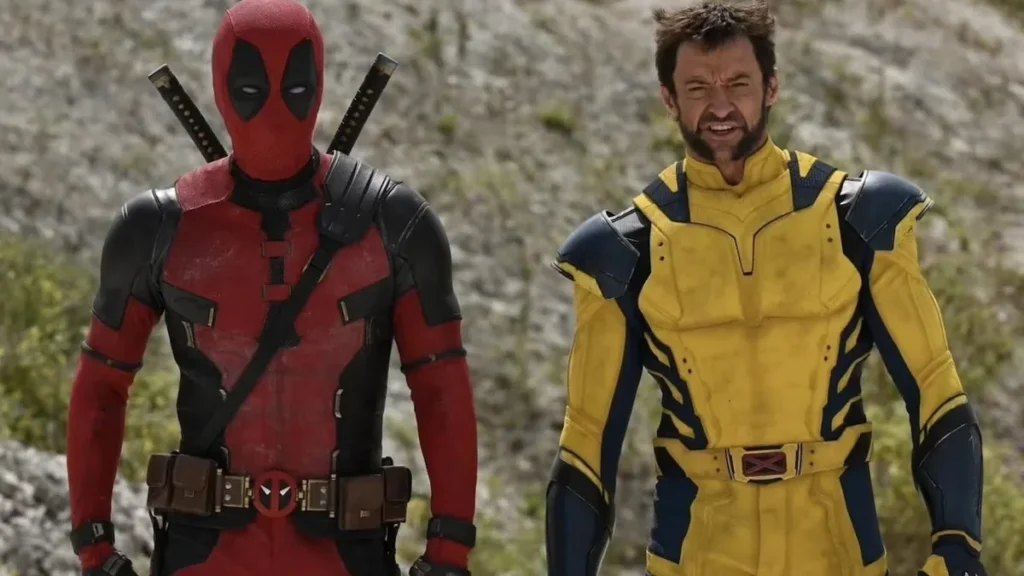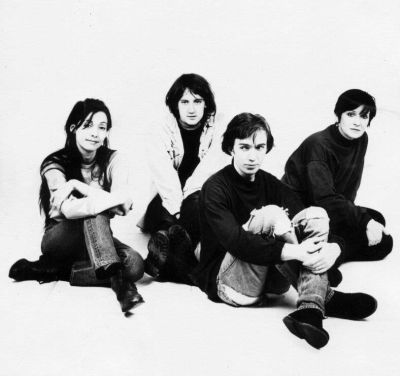Although 2024’s upcoming R-rated superhero flick Deadpool & Wolverine will mark the first time the two iconic superheroes officially meet in the MCU, there are still plenty of movies in each character’s catalogue for audiences to enjoy first. Thankfully, despite Marvel’s tendency to give audiences hefty homework before jumping into new movies, watching all of these movies isn’t necessary to understand Deadpool & Wolverine – in fact, there are some that Marvel probably wants to forget altogether. The combination of these two characters is something that’s been a long time coming in the MCU, given their hilarious dynamic in the comics, but Disney’s ongoing struggle for rights over Fox’s characters (namely, the X-Men and Fantastic Four) has, until now, kept them apart. Deadpool & Wolverine will see the two characters cross over from their own universes to the main MCU timeline, but this fresh start certainly doesn’t mean that we’ve got to leave any of these exciting, rule-breaking superhero movies in the past.

- X-Men Origins: Wolverine (2009)
It’s definitely not a controversial opinion to state that X-Men Origins: Wolverine is the worst of the X-Men franchise. It’s also the only time that Hugh Jackman’s Wolverine and Ryan Reynolds’ Deadpool have interacted on-screen, but due to some multiversal technicalities, it’s not really the same version of the characters. The story follows Wolverine before the events of X-Men, as he develops his powers and uses them to hunt down an enigmatic figure from his past after his girlfriend is murdered.
The main criticism of X-Men Origins that persists today is simply that it’s overcomplicated and boring; the story is very slow-paced and low-stakes compared to the previous X-Men Movies, and it proves that Wolverine as a character works best when part of a team. There are, however, some redeeming factors to the story: it gives Wolverine a pretty clear origin story, features some pretty entertaining fight sequences, and Liev Schreiber’s portrayal of Sabretooth is always fun to watch. Unfortunately, the positives stop there.
- X-Men 3: The Last Stand (2006)
The conclusion of Jackman’s original X-Men trilogy is another pretty disappointing entry in the franchise, mainly because it forgets what made the first two movies so great and attempts to do something completely different instead. It’s a very loose adaptation of the ‘Dark Phoenix’ comic story, which sees Famke Janssen’s Jean Grey fall into villainy as her personal views conflict with those of her teammates. Meanwhile, the X-Men band together to oppose the announcement of a treatment to ‘cure’ their mutations.
The first movies set up so many exciting plot threads and lingering questions that could’ve been explored and resolved here, but instead, X-Men 3 decided to force a whole new subplot that simply required more time to cook. The actions of the characters feel very unnatural, the dialogue sounds forced, and even the visuals aren’t as strong as usual – it’s probably a result of the movie changing hands from Bryan Singer to Brett Ratner, but it simply doesn’t work.
- X-Men: Apocalypse (2016)
We’re still in the Wolverine section of the catalogue here, but thankfully, this is where the stories at least get entertaining. It’s certainly not as solid or well-rounded as the movies that came before it, but X-Men: Apocalypse manages to scrape by the skin of its teeth thanks to a dedicated cast and a more focused narrative. Here, the X-Men band together to fight against an age-old mutant who is revered as a God.
Instead of jumping around multiple underbaked subplots like X-Men 3, this film sticks with its main villain Apocalypse and the returning heroes’ battle against him. It’s simple, but it’s much easier to follow and the higher budget makes for a more palpable sense of scale. The only downside is that Jackman barely appears in the film, as an alternate version of his character.
- The Wolverine (2013)
The Wolverine marks James Mangold’s first foray into the world of this beloved character, and it’s immediately clear that he understands Wolverine better than any of the directors that preceded him. This is a very character-focused story that ditches the high-scale antics of the X-Men franchise and replaces it with a more mature, patient narrative of mortality and sacrifice; Wolverine travels to Japan to meet an old friend who claims to have developed a cure for his immortality, forcing him to grapple with the importance of his powers.
Mangold’s storytelling is very thematic and dense, which lends itself excellently to this unique character – even if this story doesn’t reach the heights on-screen that it does in the comics. Regardless, this movie is where Wolverine truly starts to feel like a well-rounded character without the support of his team.
- X-Men (2000)
The original X-Men movie is held in such high-regard because it heralded what’s frequently seen as the first true golden age of superhero movies. The genre was definitely at a low point when Bryan Singer first decided to adapt these beloved characters (think Blade and Batman and Robin…), but his story really captures the over-the-top storytelling and glitzy visuals that make the comics so popular. It’s a very clear origin story for the X-Men, detailing the rivalry between the mutant Professor X and his old friend Magneto, who has grown disillusioned of the superpowered community.
X-Men set the stage for everything else that was to come, first providing audiences with the genius casting of Patrick Stewart, Ian McKellen, Hugh Jackman, and plenty more. This movie also makes the unique choice of following the villain instead of the heroes, which gives it another much-needed USP to distinguish itself from the ocean of subpar superhero adaptations out there.
- Deadpool 2 (2018)
It’s hard labelling Deadpool 2 as the worst of the character’s appearances, because the simple truth is that there hasn’t been a bad one yet. This movie isn’t quite as tight and polished as its predecessor, but it’s incredibly fun and brimming with lovable characters. The story follows Deadpool as he’s roped into a plot to protect a young mutant from a time-travelling mercenary set on wiping him out.
Deadpool 2 takes everything that worked in Deadpool and heightens it, introducing new villains, new heroes, new locations, and an exciting multiversal thread that opens up the possibilities a hundredfold. Josh Brolin plays an excellent villain, giving the film a much-needed sentimentality to counter the overt goofiness of the narrative.
- X2: X-Men United (2003)
The second X-Men movie is definitely the strongest of the original trilogy, which doesn’t often happen in the superhero genre. It’s notoriously difficult for a smash-hit movie to be exceeded by its sequel (look at Deadpool!), but that’s exactly what X2 did. The film blends two strong narratives together, one following an assassination attempt on the US president and one following Professor X’s school as it falls under attack – but everything ultimately comes together to reveal a much darker conspiracy.
Its biggest strength is its loyalty to the source material, closely adapting one of the most popular X-Men comics and making it work in this cinematic world. It’s a very simple battle between good and evil, but the stakes are always high and the emotional heart beats strongly from start to finish. Much like the first movie, X2 never fails at its core to be an allegory for giving strength and power to the oppressed, which gives it an extremely important message.
- X-Men: First Class (2011)
For many audiences, X-Men: First Class is where this superhero franchise really steps up to the next level. The film takes us back in time to the 1960s, to the beginning of Professor X and Magneto’s friendship, as they form the X-Men together in order to protect humanity from the superhuman threats that oppose them. What’s most fascinating about this prequel is that it places Magneto (or Erik, before he adopted his moniker) at the centre of the story before he was the villain. It’s his dynamic with Xavier that makes First Class so engaging, as the film plants the roots of their rivalry in the middle of their unbreakable friendship.
Not only does X-Men: First Class work on its own, but taking audiences back to this point in history also gives a whole new layer to the original X-Men trilogy. It allows us to see through Charles and Erik’s rivalry in a way that didn’t previously exist, which is the best part of this franchise’s decision to constantly jump through time and alternate realities. Unfortunately, Jackson’s role in this movie is little more than a cameo, appearing briefly when Charles and Erik are recruiting mutants for their school.
- Deadpool (2016)
There’s no avoiding it – Deadpool was a huge cultural phenomenon when it was first released in 2016. Not only was it one of the first mainstream R-rated superhero movies, but it was also the first Marvel movie in a long time that wasn’t connected to any of the others. That gave it a certain amount of freedom and creative liberties that definitely helped when it came to the plot and storytelling. The film follows a dying man named Wade Wilson who’s made invincible – at the cost of a life-changing disfigurement. Wilson, now calling himself Deadpool, seeks revenge on the man who performed twisted experiments on him in the name of science.
In a unique twist for the superhero genre, Deadpool is essentially an all-out comedy. There are jokes in every scene, constant fourth-wall breaks, and plenty of slapstick humour that manifests itself in some of the greatest fight sequences in recent memory. There’s really nothing like Deadpool, and it’s the constant between his complete lightheartedness and Wolverine’s solemn demeanour that’s sure to make for a hilarious match-up in their upcoming movie.
- X-Men: Days Of Future Past (2014)
Days of Future Past is a direct sequel to First Class, taking place many years before the original X-Men trilogy. It’s often cited as the best of the team-up X-Men movies for several reasons, namely its ability to bring together the past and future versions of these characters. The story follows a present-day Wolverine as he’s sent back in time to interact with the younger versions of Professor X and Magneto, tasked with protecting an important figure whose death could change the course of history.
Introducing time-travel to the world of X-Men is a genius move, not just because of the existing younger/older versions of the characters, but because the entire story feels like something plucked out of a comic book. And from a cinematic perspective, this is easily the most impressive of the X-Men movies: the visuals are outstanding, the fight choreography is gripping, and the sense of scale that Singer manages to achieve can’t be overlooked. This movie places Wolverine at the heart of the X-Men team, just like the original trilogy, exactly as it should be.
- Logan (2017)
What James Mangold teased he was capable of with The Wolverine, he finally delivers on with Logan: a sprawling epic that blends genres together to create a powerful, sentimental character study that almost exists outside the superhero genre altogether. The Wolverine offered the first hints that perhaps there’s a version of Wolverine that audiences don’t really see when he’s fighting alongside his teammates – a version that’s more mature, more rational, and more selfless. This is exactly what Logan capitalises on, taking an older version of Wolverine post-retirement and making him the focus of the story. In Logan, Wolverine works alongside an older, dying Charles Xavier to protect a young girl from an evil corporation that wants to exploit her powers.
What works so flawlessly about Logan is that’s a completely different side of the character that we’ve only caught glimpses of before. He’s always been fighting alongside his younger teammates, completely invincible with nothing to lose. Logan strips back this facade and asks who Wolverine really is behind the powers, giving him something to care and fight about. Mangold’s direction is expertly precise, painting Logan as a frail and weakened version of the superhero that’s desperate to cling to his youth and remain in control of the world – but faced with his physical deterioration and that of his friend Professor X, he’s forced to realise that immortality is as much a curse as it is a gift.





